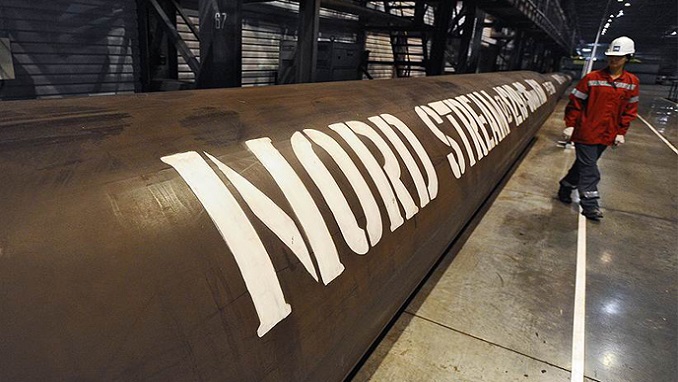The German government offered a billion-euro deal to the US in exchange for Washington’s rejection of sanctions against the Nord Stream 2 pipeline project, Die Zeit newspaper reported Wednesday, TASS informed.
According to the newspaper’s sources, Berlin expressed readiness to invest one billion euro in construction of two LNG terminals for American liquefied natural gas.
“In exchange, the US will allow unobstructed finalization and use of Nord Stream 2,” German Vice Chancellor and Finance Minister Olaf Scholz said in his letter to US Secretary of the Treasury Steven Mnuchin. In the letter, Germany noted that “the existing legal options for sanctions have not been exhausted yet.”
According to the newspaper, Scholz first expressed Berlin’s position verbally and later confirmed it in written form. The LNG terminals in question are supposed to be constructed in German cities of Brunsbuttel and Wilhelmshaven. In exchange for rejection of sanctions, the German government promised to “increase the state support for the construction by allocating up to 1 billion euro.”
The newspaper noted that the EU leaders will discuss the future of the Nord Stream 2 project at the September 24-25 summit, in the light of the Alexey Navalny incident. The blogger’s case sparked heated discussions in Germany and the EU around the project’s implementation. The German Greens rolled out an ultimatum to stop the project. The Free Democratic Party demanded a temporary moratorium on construction until all issues are settled. Candidate for CDU chairman Friedrich Merz voiced a similar demand.
Initially, the German Government proposed not to tie the Navalny incident with the Nord Stream 2 project. Only after German military toxicologists claimed that Navalny had been poisoned with a Novichok-class substance, the tone changed. Last weekend, German Foreign Minister Heiko Maas voiced hope that Russia will not force Germany to “change its position,” which the media interpreted as a threat to stop the project. According to the Cabinet spokesman Steffen Seibert, Chancellor Merkel “agreed with the statements” of the top diplomat. However, the German Minister for Economic Affairs and Energy Peter Altmaier was sceptical about the possibility of such sanctions.
On June 4, the US senators introduced a bill to extend the sanctions against the Nord Stream 2 pipeline. According to the spokesperson of one of the bill’s initiators, the paper updates and extends sanctions within the law on European energy security and aims to prevent the pipeline construction. Germany harshly criticized the plans to extend the sanctions against the pipeline.
The Nord Stream 2 project invisages construction of two pipelines with a total capacity of 55 billion cubic meters per year from the Russian shore through the Baltic Sea towards Germany. Currently, the pipeline is 93.5% complete. The construction halted after the Swiss company Allseas stopped working on the pipeline and moved its ships away.












